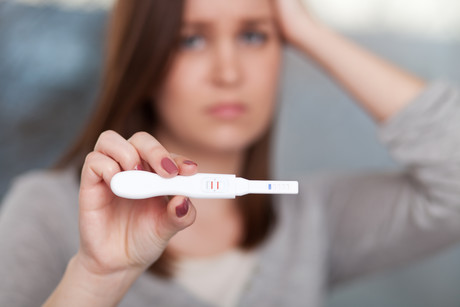Some Vic doctors breaking the law re abortion
Thursday, 31 January, 2019

A new study has found that a number of Victorian doctors who conscientiously object to abortion could be breaking the law, due to not referring their patients onto another health professional who doesnÔÇÖt object.
Under Section 8 of the Abortion Law Reform Act 2008 (VIC), health professionals with a conscientious objection to abortion are╠řobligated to refer women to another provider in the same health profession who does not object.
The new research, published in BMC Medical Ethics, also found that these women are having abortions╠řmuch later than necessary or giving birth to the baby, despite seeking a termination.
The University of Melbourne-led study involved Family Planning╠řVictoria, The Royal WomenÔÇÖs ║┌┴¤│ď╣¤╚║═° and WomenÔÇÖs Health Victoria, and reported on 19 qualitative interviews with Victorian╠řabortion experts in 2015.
The researchers found:
- Most doctors would not let moral or religious beliefs impact on their patients, yet all study participants knew of╠řsome who did.
- Doctors directly contravened the law by not referring women or by attempting to make women feel guilty,╠řattempting to delay womenÔÇÖs access or claiming an objection for reasons other than conscience.
- Study participants were uncomfortable that whole institutions were allowed to conscientiously object to abortion.
- These factors compromised access to care for some women.
- Use or misuse of conscientious objection by government telephone staff, pharmacists, institutions and political╠řgroups was also reported.
╠ř
Conscientious objection is only deemed ethical if it doesnÔÇÖt impose an unreasonable burden on the patient in terms of delay,╠řdistress or health consequences. Failure to comply with Section 8 may result in professional misconduct charges by the╠řrelevant registering authority. In Australia, an estimated 15%╠řof healthcare professionals are conscientious objectors.
Lead author Louise Keogh of the University of Melbourne School of Population and Global Health Centre for Health Equity said while the number of conscientious objectors not meeting their obligations appeared to be small, the impact could be╠řsignificant, particularly for women in rural and regional areas that were not well serviced.
ÔÇťWe have legal protections to ensure that womenÔÇÖs access is not restricted due to a doctorÔÇÖs moral or ethical position, but╠řthis research suggests that in practice, they donÔÇÖt appear to be working,ÔÇŁ Associate Professor Keogh said. ÔÇťWe need more╠řinformation about the size and spread of the problem to determine whether education and guidelines can help. There are a╠řnumber of guidelines already.ÔÇŁ
The studyÔÇÖs participants included experts working for organisations that provided surgical and medical abortions. Many╠řreported instances of Section 8 being contravened, and some working in rural areas said such actions were ÔÇťcommonÔÇŁ.
Associate Professor Keogh and her co-authors are calling for new guidelines in the Victorian setting to clarify the limits of the╠řclause, and potentially reduce disingenuous claims of conscientious objection. ÔÇťFurther research should address policy╠řapproaches and professional and community education initiatives with the capacity to reduce barriers and improve timely╠řaccess to abortion care,ÔÇŁ Associate Professor Keogh said.
Note: Laws on abortion in Australia vary in each state and territory. Abortion is legal in all states and territories bar NSW, where it is legal under . In the states and territories where abortion is legal, the timeframe╠řin which the abortion may╠řoccur varies, generally ranging from between 16 and 24 weeks.
Victoria's Q3 median ED wait times the lowest on record
Victoria's quarter three performance data (January–March) has shown improvement across...
Irregularities in a clinician's cases prompt 15-month lookback
St Vincent's ║┌┴¤│ď╣¤╚║═° Sydney has detailed a 15-month lookback review — prompted by...
Two researchers receive $899,000 in cardiovascular funding
In heart-related news this Heart Week (5–11 May), two University of Newcastle researchers...








